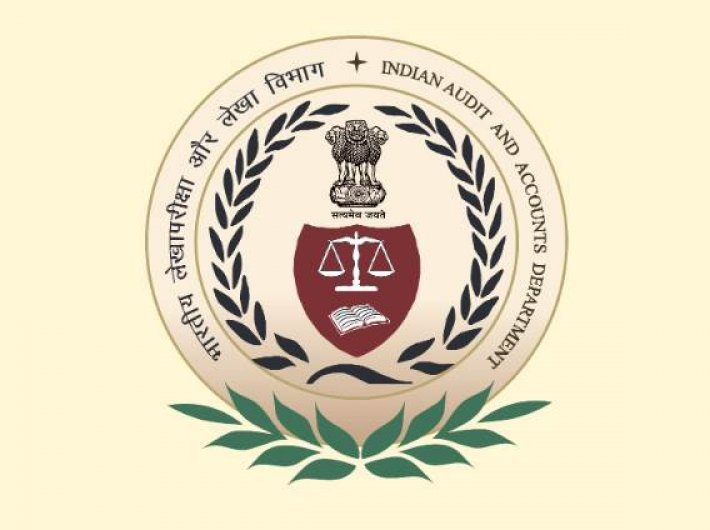Anti-naxal support equipment was neither supplied nor available in the test checked fortified police stations, said a report
A performance audit in Odisha on ‘Special interventions for development of Left Wing Extremism (LWE) affected districts in the State’ showed that special intervention programmes in the areas of development, security and rights recognition were not implemented properly, said a CAG report.
The Comptroller and Auditor General report said that planning under Integrated Action Plan (IAP)/ Additional Central Assistance (ACA) for LWE districts was deficient due to belated preparation of Annual Action Plans (AAPs), inclusion of inadmissible projects and giving least priority to skill development and livelihood initiatives. Besides, there was a shortfall of Rs 163.88 crore in allocation to LWE areas in test-checked districts.
“Management of funds was deficient due to irregular diversion of funds, nonrefund of savings and interest earned by the executing agencies, loss of Central assistance of Rs 497.43 crore and non-adjustment of advances for years. Programme implementation was marred by delay in execution of works, 64 works left incomplete for one to four years despite spending Rs 8.89 crore, expenditure of Rs 6.20 crore on 43 completed projects that remained unused, execution of works of substandard quality (Rs 7.27 crore), etc. Inspection and monitoring of implementation of the scheme were inadequate,” the report said.
Read: Catering family planning needs in Jharkhand’s Red Corridor
The CAG report noted that execution of security related works by the Odisha State Police Housing and Welfare Corporation Limited (OSPHWC) was marred due to non-commencement as well as delayed execution of critical infrastructure projects like Special Operation Group hub at Koraput, hub for Central Reserve Police Force at Muniguda and additional fortification works.
Four security hubs, 20 barracks, staff quarters, approach roads to security camps, etc., sanctioned during 2007-08 to 2011-12, were left incomplete after spending Rs 14.76 crore for over one to four years, due to cost overrun of Rs 12.70 crore and non-sanction of revised estimates, despite availability of interest income of Rs 100.70 crore.
“At Koraput and Bhamini, security forces were, thus, staying in dilapidated and incomplete buildings for years without basic amenities. Anti-naxal support equipment was neither supplied nor available in the test checked fortified police stations,” said the report.
Reimbursement of Rs 81.90 crore under Security Related Expenditure had been disallowed by the government of India due to hiring of a helicopter without obtaining prior approval, non-completion of infrastructure projects, etc. Instances of delay/non-payment of ex-gratia to the families of deceased security personnel and civilian victims were also observed.
No mechanism was put in place to track those who had surrendered to ascertain their integration with mainstream society, it said.
The report went on to say that Forest Rights Act was not implemented in the state in conformity with the provisions of the Act. Claims of Other Traditional Forest Dwellers were rejected for want of evidence in support of possession of forest land for 75 years.
Thirty-five out of 51 test-checked claims were irregularly rejected and the claimants were not intimated about the reasons for rejection, thus, denying them the opportunity to file petition. Even after distribution of titles, records of rights/ revenue records were not corrected. Titles were not distributed even after finalisation. There was mismatch in reporting the progress of distribution of titles as well as implementation of FRA.
The report also noted that out of 38.39 lakh children considered eligible, 3.58 lakh (nine percent) in the state were not provided supplementary nutrition. Supply of food stuff under the scheme was not managed properly, due to which instances of short/ non-supply of eggs and ‘rasi ladu’ were observed. Quality control mechanism for take home ration was not effective as sample test reports indicated supply of adulterated/ sub-standard/ unsafe ‘chhatua’ to the beneficiaries. Stock management of wheat and rice under Supplementary Nutrition Programme was deficient. Misappropriation of rice was observed in 12 Anganwadi Centres (AWCs) under Joda (T) project.
Also, out of the 82.03 lakh enrolled children, 5.56 lakh children (seven percent) did not attend pre-school education. Pre-school education kits and Nua Arunima work books were not supplied regularly. Health check-up was provided to only 30 percent of the eligible children, 56 percent of the pregnant women and 50 percent of the nursing mothers in the state during 2011-16. Only 46 percent of the severely malnourished children were referred to hospitals for treatment.
Read the full CAG report here


